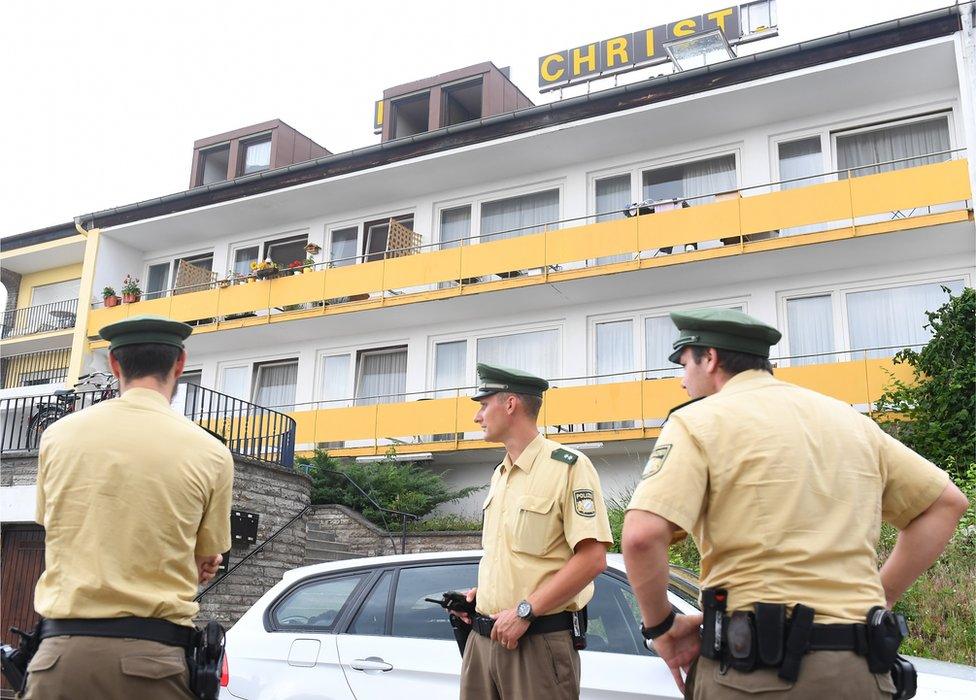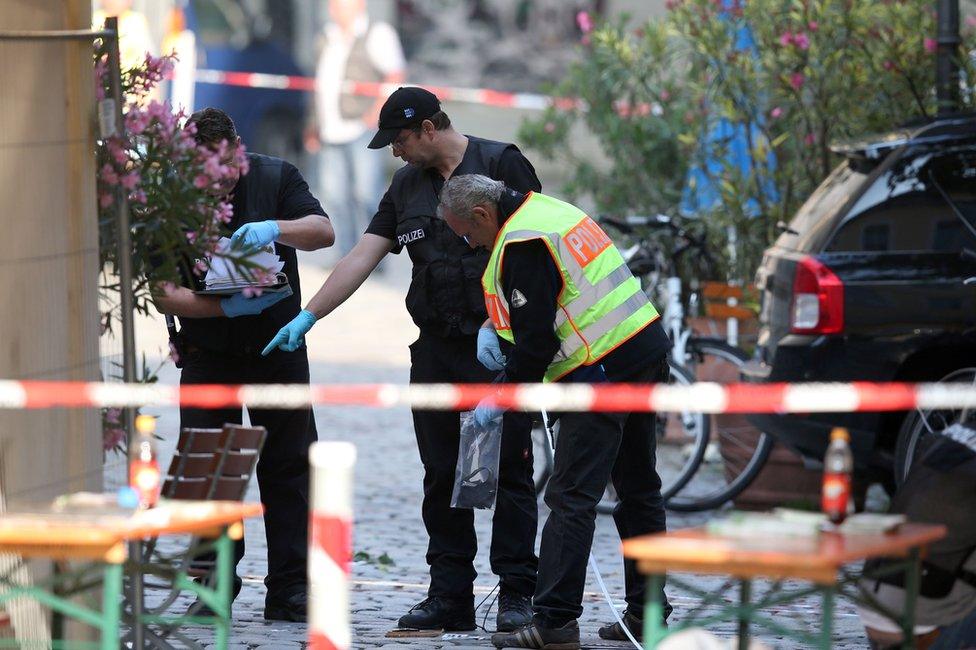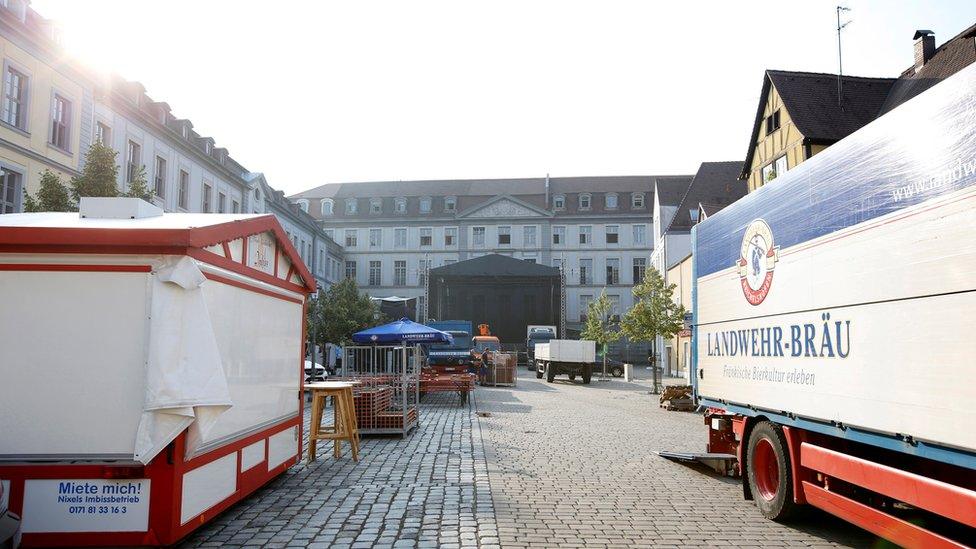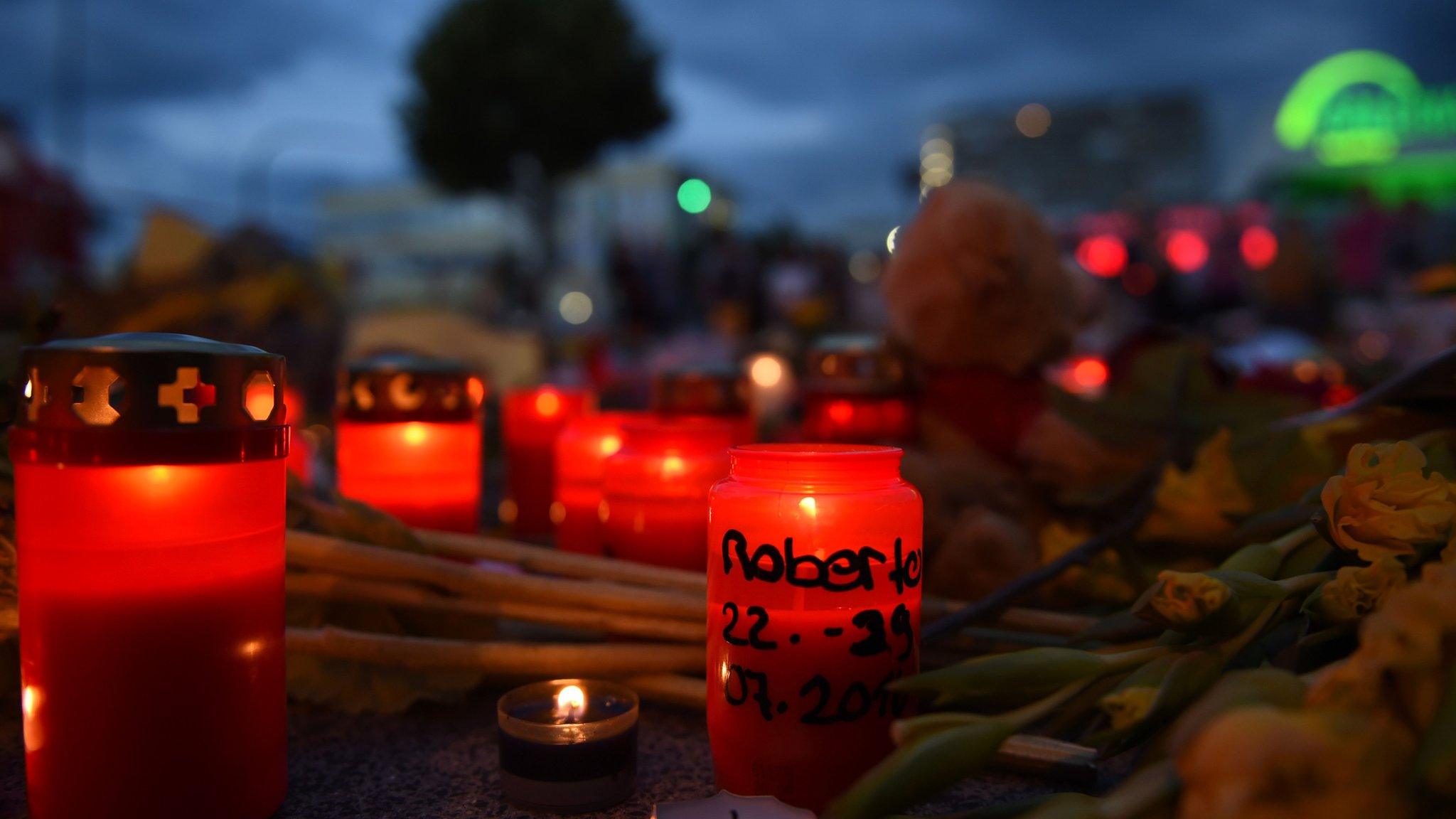Ansbach attacker: Asylum seeker to IS suicide bomber
- Published

The bomber had lived with other asylum seekers in a former hotel in Ansbach
The Syrian man who blew himself up in a small Bavarian town in the name of so-called Islamic State (IS) had faced deportation to Bulgaria after losing his bid for asylum status in Germany.
German Interior Minister Thomas de Maiziere said the man, who has not been officially named, had applied for asylum in August 2014. Using his fingerprints, officials found that he had already been registered as an asylum seeker in Bulgaria and later in Austria, he said.
He said Bulgaria had told German authorities that the 27 year old had been granted protection as a refugee there - as a result his application for asylum in Germany was refused on 2 December 2014 and his deportation to Bulgaria was ordered.
However, after medical certificates showed the man's "psychological instability", the deportation order was temporarily lifted, the interior minister said. But on 13 July it was re-issued.
That was just 11 days before the attacker struck, injuring 15 other people when he exploded his device on Sunday night, close to a square where a music festival was under way.
Police say he set off the bomb in his backpack after being kept from entering the festival ground because he did not have a ticket.
He had tried to kill himself twice in the past and had spent time in a psychiatric clinic, officials said.
'He lied so often'
Investigators announced on Monday they had found a video message on the bomber's phone in which he pledged allegiance to the leader of IS, Abu Bakr al-Baghdadi.

The bomber set off his device near a cafe

The bomber had been unable to enter the square where the festival was under way because he had no ticket
In the message, he threatened an "act of revenge against Germans because they were standing in the way of Islam", Bavarian state interior minister Joachim Herrmann told reporters.
Violent, militant Islamist videos and bomb-making materials including petrol and chemicals were found in his lodgings.
An Iranian neighbour at the former hotel, Alireza Khodadadi, told reporters he had occasionally drunk coffee with the Syrian, whom he named only as Mohammed, and they had discussed religion.
Alireza Khodadadi lived with the attacker in accommodation for asylum seekers in Ansbach
Mohammed, he said, had told him IS was not representative of Islam and he would say, "No, I'm not with them, I don't like them."
"He would always ask me if people in Iran were Shi'ite [Shia Muslim] or Sunni [Muslim],'" Mr Khodadadi said.
At the same time, the Iranian recalled a man who would "tell lies so often without any reason", just to gain attention.
"Mohammed" had been known to local police because of a drug-related offence.
A social worker who knew him, Reinhold Eschenbacher, recalled him as "friendly, inconspicuous and nice", Germany's DPA news agency reports.

The Syrian asylum seekers rejected by Germany
Germany has been the main destination of Syrian asylum seekers entering the EU, most of them arriving irregularly in Greece via Turkey.
Only 23 Syrians had their applications for asylum rejected by the country last year, out of a total of 105,620 decisions on Syrians' applications. A common reason for rejecting an application is when the asylum seeker submits false or incomplete information.
Just under half of asylum seekers rejected by Germany in the past two years were allowed to stay on in the country, according to a recent report in German daily Die Welt , external(in German).
The Ansbach bomber, who was among those rejected for asylum in 2015, appears to have been placed in a former hotel in the town, designated by the municipal authorities for asylum seekers since 2014.
Source of statistics: German Federal Office for Migration and Refugees report, external (in German)

- Published25 July 2016

- Published19 July 2016
